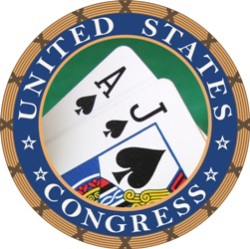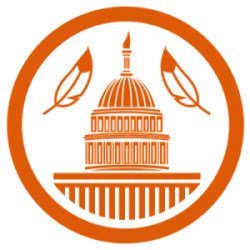Federal Online Gambling Bill Coming To America?

Back in 2006, Congress led a crackdown on online gambling and by 2011 the U.S. Justice Department had successfully managed to dismantle America’s thriving online poker industry after ousting PokerStars, Full Tilt Poker and Absolute Poker from the US market.
By 2011, however, the 2006 UIGEA statute was re-interpreted to permit state-by-state legalized online gambling, although many big US gambling operators, such as Caesars and MGM, have since been calling for a federal online gambling bill to ensure consistent laws across all states nationwide, instead of the disparate patchwork of rules currently taking shape in individual states.
At the heart of the matter is the fact that if U.S. legalized online poker is ever to realize its full potential, then cross border play will have to be allowed, as the success of such popular sites as PokerStars, Full Tilt and iPoker can attest. In other words, it is the volume of customers which guarantees the success of a poker room, while sites that try to branch out independently, like Betfair, have failed miserably and eventually have had to join a network.
State-by-state legalized online gambling
Regardless of their wish for a federal law, Caesars and MGM decided to take full advantage of recently passed state laws in New Jersey and Nevada and set up their own internet poker sites, even though those sites are limited to only accepting players from within their own states. Confirming their suspicions, early indications show those poker markets struggling to attract adequate volumes of players, with online poker traffic tracking site PokerScout reporting that in the last seven days MGM’s Borgata and Caesar’s WSOP New Jersey had an average of around 200 players each at any one time, while in Nevada WSOP and Ultimate Poker are averaging roughly 100 players each.
When compared to the 25,000 cash players PokerStars averages over a seven day period, and the 100,000 players they enjoyed before Black Friday, then the need for player pooling and a federal online gambling bill becomes even more apparent.
A federal legalized interstate poker law?
Although most experts in the industry believe a federal law presents the only real option for a competitive, profitable online poker market, casino operators will nevertheless continue to set up state by state web sites in the US until such time as federal regulation is introduced. As Caesars Interactive Entertainment CEO Mitch Garber, explains:
“We live under a State by State regime in land based gaming and embrace it today as the prevailing online solution. It is our belief that it is not too late for a Federal bill given that only Nevada, New Jersey and Delaware have legalized online gaming, however we are succeeding at growing a meaningful business in Nevada and New Jersey and see momentum toward a rollout of future state by state legalization, and compacting between states which will address the issue of scalability. So, we are very happy with the rollout of the first states and we are actively working to get the same result in a number of additional states. That is our focus.”
One casino owner adamantly opposed to internet gambling in the United States, however, is Las Vegas Sands CEO Sheldon Adelson, who has been fervently campaigning against what he has termed a threat to society and “a toxin which all good people ought to resist.” In fact, so opposed is the billionaire casino mogul to online gambling that he even helped create advocacy group, the Coalition To Stop Internet Gambling, with the intention of preventing the introduction of bills to legalize online gaming in each state where one is introduced. Adelson has also been drumming up support for his draft federal bill, the Internet Gambling Control Act, which seeks to reverse the 2011 decision to re-interpret the Interstate Wire Act of 1961 and so allow for online gambling.
Several states primed to expand online gambling in 2014
Back in 2013, Nevada, Delaware and New Jersey enacted legislation to introduce online gambling and, despite Adelson’s protestations, so far this year another 10 other states are currently considering bills to regulate online gambling opportunities. These 10 states include California, Colorado, Hawaii, Illinois, Iowa, Louisiana, Massachusetts, Mississippi, New Jersey and Pennsylvania.
Meanwhile, gambling experts agree that debates and actions regarding online gaming will likely remain at a state level for now, with report entitled, ‘U.S. Internet Gambling in Focus‘, explaining: “It is an election year, which means that virtually all politically controversial subjects, including Internet gambling, will be seen through the risk-averse lens of re-election.”










